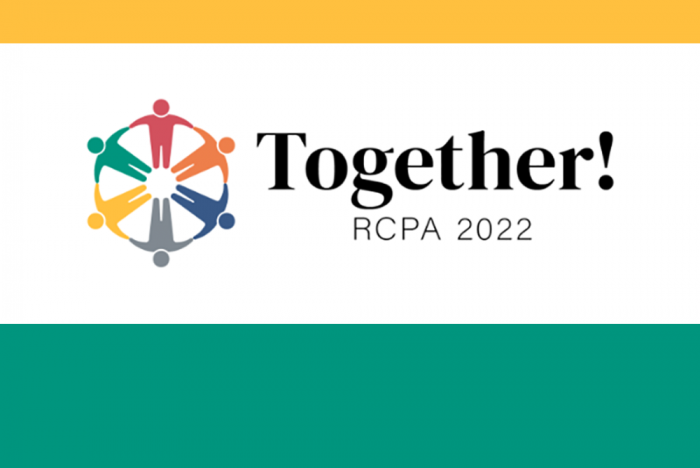Register Now for the 2022 RCPA Annual Conference Together!
Registration for the RCPA Conference 2022 Together! is now open! Together! will be held October 11 – 14, 2022, at the Hershey Lodge in person this year. Be sure to register, as early bird rate is available now until September 9, 2022.
We are excited for the line-up of speakers who will be presenting at this year’s conference, as there will be pertinent information available and discussed for all service areas. Workshop sessions include:
- Leading Through Crisis
- Presented by Stacey Nybeck of Serve, Inc.
- How Measurement-Based Care Informs Health Reform and Value-Based Reimbursement Advocacy
- Presented by Shannon Hall of Community Behavioral Health Association of Maryland and Simon Weisz of Greenspace Health
- Provider and Member Centric VBP Development in IBHS: A Success Story That Benefits All Parties
- Presented by Debra Luther of Beacon Health Options, Steven Herr of Advanced Metrics, and Kim Bowser-Murtha of Fayette County Behavioral Health Administration
- Building an IDD System of Care Through Mergers and Acquisitions
- Presented by Tine Hansen-Turton of Woods Services, Inc., Roy Leitstein of Legacy Treatment Services, Inc., Karen Coleman of Tabor Services, Inc., and Lori Plunkett of Woods Community at Brian’s House
- Supporting the Middle Manager
- Presented by Andrea Brown, Katie Clauss, and Juliette Ballough of UPMC Western Behavioral Health
- How to Transform ID/A Service Delivery Though Technology: A Provider’s Journey
- Presented by Craig Douglass, Kim Sonafelt, and Heather Lewis of Mainstay Life Services, Christina Romel of SafeinHome, and Maddie O’Rourke of Wellbridge Health, Inc.
- Innovations in Long-Term Services and Support Managed Care
- Presented by Blair Boroch of United Healthcare and Tammy Palmgren of Highmark Wholecare
You also won’t want to miss our keynote speakers:
- Dick Finnegan, a respected speaker, author, and CEO of C-Suite Analytics, who will provide his insight on “The Great Resignation;”
- Deborah Riddick, a public policy expert, who will discuss how intentional collaboration centered in curiosity, authenticity, and integrity, can help to address health disparities;
- Dan Hilferty, a respected authority on health care, business, and civic engagement; and
- Michael Cohen, who has updated stories of uncommon HR situations and strategies to resolve them.
Be sure to check out the entire line-up of sessions in our brochure, and note that sessions will be recorded to allow participants to take advantage of sessions after the event.
Questions about the conference may be directed to Carol Ferenz or Sarah Eyster, Conference Coordinators.


















